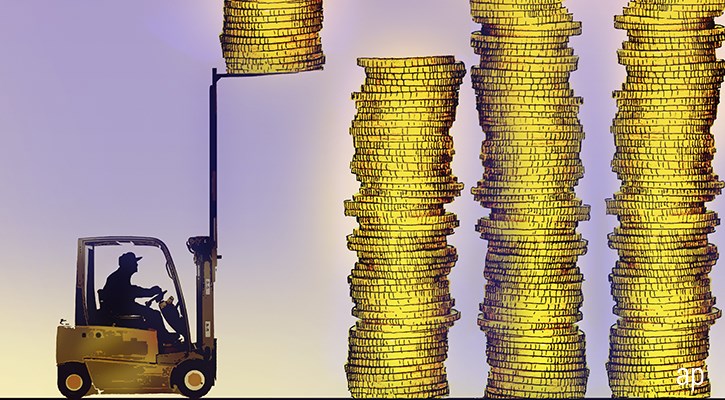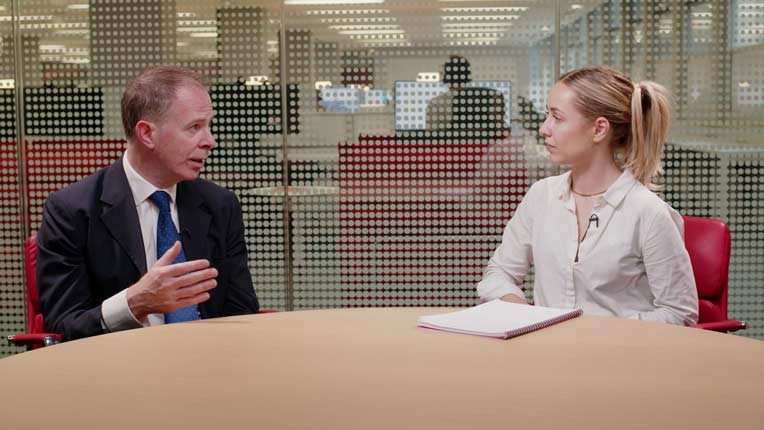Holly Black: Welcome to the Morningstar Investment Board. I'm Holly Black. Today, we're talking pension drawdown. Now, drawdown is a word you would have heard a lot more in the last few years since the government introduced pension freedoms. And this meant that people could have a lot more choice about how they use the money they had saved for retirement. So, previously, you'd have your pension pot, and unless it was a huge amount, you would have to buy an annuity with it. And that is the thing that gives you a guaranteed set income for life. Drawdown lets you manage your own money. So, you can leave this pension pot invested in the stock market so it can continue to grow even after you stop working. And then, you can take drawdown either ad hoc lump sums from it, or a regular income and that will fund your retirement.
She's loving retirement life. So, let's use an example here. Let's say, we've got quite a nice pension pot of £250,000. Now, if I just took that and kept it in cash so it wouldn't grow. Let's assume I lived 25 years. So, I retire at 60 and I go till I'm 90. To make that last 25 years, I can take a £10,000 income from it every year, and there will be nothing left at the end.
But if I want my money to outlast me, or I'm intending on getting a telegram from the Queen when I get to 100, then I need to think a little bit differently about it. So, this is where drawdown can come in. So, a pension body called the PLSA did some research about what the typical retirement income looks like. And they said that for sort of middling comfortable retirement, you should aim to have an income of £20,000 a year. Apparently, that is enough to get me a two-week holiday in Europe once a year, and some new clothes quite regularly. All sounding good so far.
So, when we're thinking about that, that's obviously quite a lot of money. But don't forget, you have got the state pension. As currently, the flat rate is about £168 a week. It's about £8,767 year. So, just for simplicity sake, we'll say £8,000. So, that means I've got to fund for myself £20,000 minus £8,000; I've got to fund £12,000 of that a year by myself for my pension pot. So, if I take my £250,000 and I take my £12,000 income from it, I'm left with 238,000. So, we can see that if I don't invest that, that's going to dwindle pretty quickly. However, if it stays in the stock market, and I get growth of 5% on it, then after one year, when I come back for my second chunk, we're back up to £249,900. So, you can see that on that model, the money is literally going to last forever. And that leaves a very tidy sum for me to pass on to my loved ones or whoever I'm fancying leaving my estate to.
So, under that you can then start thinking, well, I could have more of a comfortable retirement. If I don't want to pass on all of that money, maybe I could move up to instead of the PLSA's £20,000 model, they said for a fancy retirement, you might look for £33,000 a year. Apparently, that will get me a new bathroom or kitchen every 10 years, and I can eat out a lot more. That is a pizza. It looks like a bicycle tire. So, with that, so I would take off my estate pension and that means I need to self-fund about £24,000 of that from my £250,000. So, after – on year one, when I take this out of my pot, I've then got £226,000. And if that grows at 5%, and I come back at year two for my second installment, I have £237,600. So, that's obviously not replenishing itself at the same rate that it's going to last me forever. But it does mean I can have this fancier lifestyle, and that money will last 15 years. So, that means that by the time I get to my 80th birthday, I might be blowing out the candles, but I am down to my last £1,0000.
So, it depends what approach you want to take to retirement. It shows that you can go for a sort of more middling, cautious approach leaving money in cash, but it is going to be finite. You could make your money last forever if you planned it out properly. Or you can have a more comfortable retirement but in the knowledge that it's not going to last forever. And this shows you why these pension freedoms are really great because they give us lots of choice, but they also put a lot of responsibility on our shoulders because we need to do the math, we need to be realistic about life expectancy, we need to be realistic about how much we're going to spend in retirement, and all the other things that can impact these calculations, like the fees on the funds you're investing, or even inflation, which makes the cost of living go up each year, which might mean that rather than taking my flat amount, I want to take out a little bit more each year to keep up with the cost of living. So, that's drawdown.




























